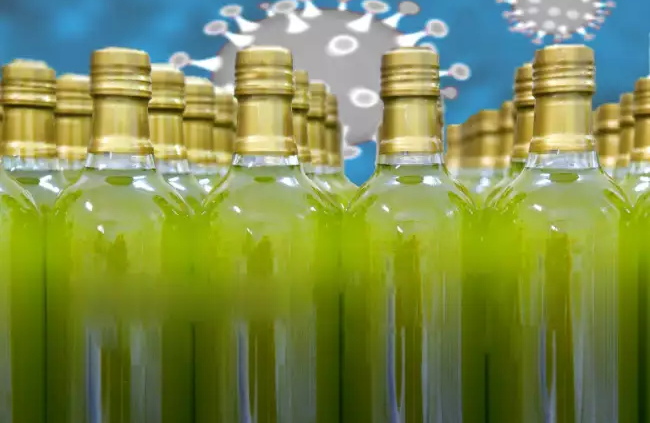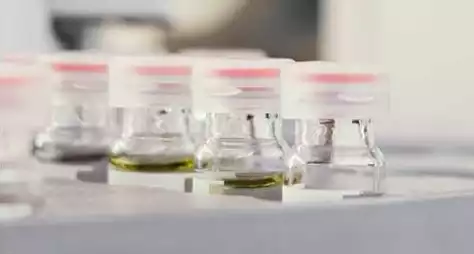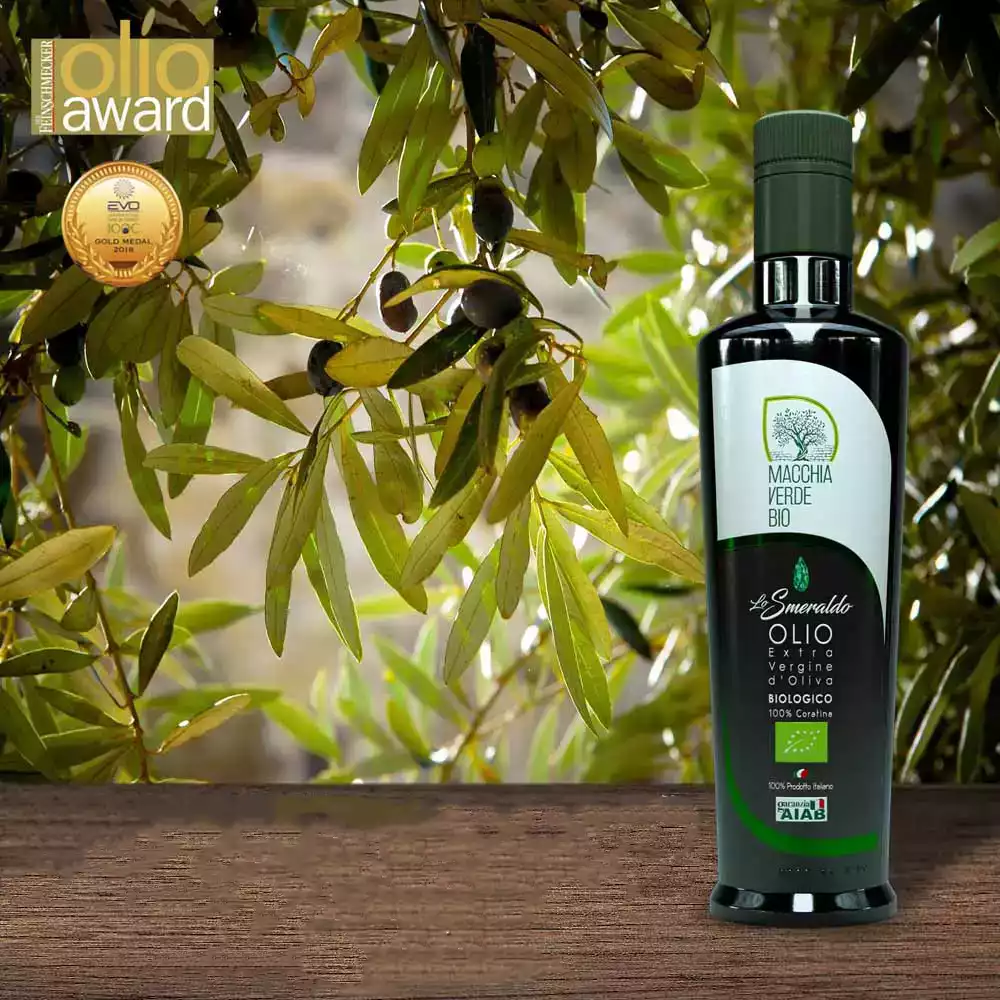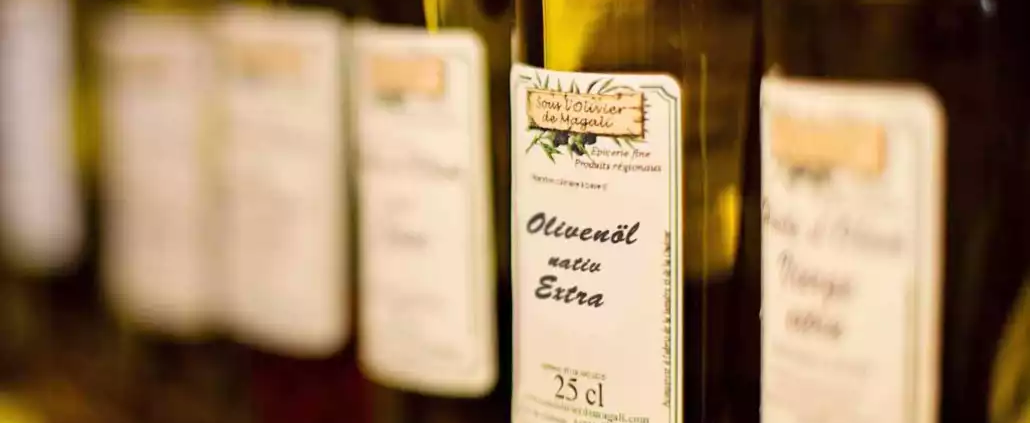Strengthen the immune system! The answer to any virus.
In the cold season, inflammations have it easier again. This is because the causative agents, bacteria and viruses, are better able to take hold in our bodies. But olive oil helps. Through certain substances, the polyphenols, including oleocanthal, it soothes inflammation, strengthens the immune system and prevents colds. About three tablespoons a day – in a salad, for example – is enough.
You should make sure that it is not a supermarket or discount olive oil, but a high-quality olive oil with proven polyphenol values, because these are practically non-existent in the commercial brands.
You should also always use olive oil for cooking. On the one hand it is really suitable for cooking, and on the other hand it has a positive effect on your defences: It contains oleocanthal. This ingredient has only recently been discovered by researchers. It has the ability to stop inflammatory processes and is even said to prevent cancer. In addition, the polyphenols it contains increase the fluidity of your blood and have an antioxidant effect. They therefore protect your cells from damage.
The source of infection is in northern Italy, above the Appenines, where the diet is similar to that of Germany, with almost no fresh food and 80% of the olive oil sourced from supermarkets. In the more southern regions, the infections practically only occur in urban areas.
Strengthen the immune system – Healthy lifestyle
An unfavourable lifestyle with highly processed foods, one apple per year for vitamin supply, short nights and preferably a wheelchair under your butt to avoid any movement, leads to so many waste products, acids and toxins in your organism that it literally longs for every cold. In this case, a cold is therefore roundly used by the body for detoxification.
During a cold, you are known to be tired, have little appetite and therefore do not eat much. Instead, the organism is given rest, light food and tea.
Automatically, we give our body exactly what it needs in this situation: Rest and relaxation to concentrate on detoxification and fluids to dissolve all the accumulated waste products and then usher in the regeneration phase.
All the mucus that flows out of the nose or is coughed up during a cold naturally also contains bacteria or eliminated viruses. But together with this mucus, the everyday toxins and metabolic residues that have accumulated over the past weeks and months can finally be eliminated.
A cold can therefore also be viewed positively, namely as a welcome detoxification boost. However, if you could well do without colds in the future and also do not want to take part in every flu epidemic, then ensure with a healthy diet and lifestyle that less waste products enter your body in the future.
At the same time, strengthen your immune system so that you are immune to colds and flu in the future.
Foods that strengthen the immune system
In critical times – when colds are rampant – focus on very specific foods and spices that can strengthen the immune system:
Vegetables that strengthen the immune system
From all vegetables, choose preferably broccoli, kale, carrots, tomatoes, chicory, cabbage, garlic, mushrooms and spinach.
Especially red, yellow, orange and deep green vegetables, which contain plenty of beta-carotene (the precursor of vitamin A) in addition to numerous other vital substances, strengthen the immune system. They stimulate the production of our body’s police – the white blood cells – and thus help the body to defend itself against infections.
Among all cabbages, kale is the most nutrient-rich and at the same time the most powerful in the fight against pathogens and even cancer cells. It not only provides enormous amounts of beta carotene, but also a particularly high amount of vitamin C, calcium and secondary plant substances.
Moreover, cabbage vegetables are rich in secondary plant compounds from the group of isothiocyanates. These include sulforaphane, which is considered an arthritis and cancer killer and is found especially in broccoli and broccoli sprouts.
Strengthen the immune system with broccoli
Sulforaphane and its effects on the immune system were investigated in an Indian study by the Amala Cancer Research Center in Kerala. It showed that sulforaphane significantly increased the activity of natural killer cells (a type of defence cell). The specific immune system was also strengthened in the formation of antibodies by sulforaphane. Sulforaphane also significantly increased the production of interleukin-2 and gamma interferon.
Interleukin-2 is a messenger substance whose presence promotes the division and multiplication of defence cells. Gamma interferon, on the other hand, activates macrophages, i.e. the scavenger cells of the immune system. Sulforaphane is therefore a perfect substance that can strengthen your immune system.
Eat the vegetables mentioned – whenever possible – raw (the leafy vegetables in the form of a green smoothie) or only very lightly steamed to get the most out of the vital substances. Broccoli sprouts are also available dried and consequently with a particularly high sulforaphane concentration.
Fruits that strengthen the immune system
Among all fruits, the following are particularly suitable for strengthening your immune system: Lemons, grapefruit, guavas, oranges, bananas and dark fruits such as cherries, blueberries, blackberries, blackcurrants and dark grapes – preferably always several combined with each other.
Almonds strengthen the immune system
The best of all nuts and seeds is the sweet almond. Scientific studies have shown that almonds lower cholesterol and have a similar healing effect on the intestines as prebiotics.
Prebiotics are substances that ensure a healthy intestinal environment by providing sufficient food for the beneficial intestinal bacteria. In this way, prebiotics and also almonds promote the health of the immune system, as this is known to be largely located in the intestine. It is enough to consume a small handful of almonds daily to enjoy their beneficial effects.
Spices that strengthen the immune system
If you regularly season your meals with ginger, cinnamon, cumin, oregano and cayenne pepper, you can make your body so strong that it will soon be able to fight off colds with ease. You can also make very effective teas from all the spices mentioned (with the exception of cayenne pepper).
Cayenne pepper (capsaicin) and cinnamon can also be taken as capsules.
If you already have a cold and only then read these lines, the spices mentioned will help you to overcome your cold more quickly.
Foods that weaken the immune system
Often, just avoiding some foods helps to strengthen the immune system.
Sugar, for example, weakens the immune system enormously. The American Journal of Clinical Nutrition has now also commented on this. According to this medical journal for dietetics, sugar can impair the immune system to such an extent that infectious diseases have an easy time.
Refined sugar provides isolated carbohydrates, but otherwise absolutely no nutrients or vital substances. Sugar causes the body to produce a multitude of harmful metabolites, irritates numerous bodily functions and is consequently associated with a plethora of diseases and ailments.
Sugar also has enormous addictive potential. You will notice this at the latest when you want to give up sugar, sweets and sweetened foods. The first few days are hard, but then you feel fitter and clearer than ever. Keep control of yourself and your eating habits. Overcome your sugar addiction!
Avoid unhealthy fats and oils like margarine, refined vegetable oils and lard.
Instead, use high-quality vegetable oils from the organic trade, e.g. linseed oil, hemp oil or olive oil. Coconut oil is excellent for frying.
Of course, industrially processed and chemically treated “junk food” will not necessarily make your immune system stronger, but much weaker.
Foods low in vital substances such as fast food, biscuits, crisps, sweets, cakes and all foods that come directly from the retort of the food industry and are made from heavily treated ingredients are therefore not recommended.







